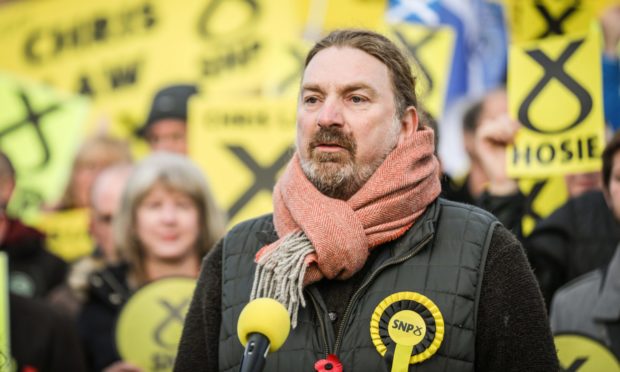SNP MP Chris Law revealed he might have been a victim of forced adoption as he called on the UK Government to formally apologise to the people affected by the “appalling” practice.
The Dundee West MP told the Commons that despite the Welsh and Scottish Governments both issuing formal apologies, Westminster is “always last to the table to accept state responsibility for the most vulnerable members of society”.
He said “I stand here as possibly one of those children”, adding that “forced adoption is not simply a historical injustice” but “an ongoing injustice”.
Rejected by society
Hundreds of thousands of children were given up for adoption between 1949 and 1976 in the UK, at a time when unmarried mothers were often rejected by their families and ostracised by society.
Adoptions were generally handled through agencies run by the Church of England, the Roman Catholic Church and the Salvation Army.
Speaking at business questions, Mr Law said: “Why is Westminster always last to the table to accept state responsibility for the most vulnerable members of society?
“Between 1949-1976, an estimated quarter million children across these islands were taken from their mothers and fathers and forcibly adopted.
“I stand here as possibly one of those children.”
He added: “Despite the Scottish and Welsh Governments issuing a formal apology, the UK Government stopped short and said we are sorry on behalf of society for what happened.
“Adoption is a form of state practice and it’s the state who is responsible for setting standards and protecting people.
“Forced adoption is not simply a historical injustice, it’s an ongoing injustice.
“So can we therefore have a statement in which the UK Government will finally issue a formal apology to those mothers, fathers and children who continue to be affected by what was an appalling practice?”
Commons Leader Penny Mordaunt thanked Mr Law for raising the “important matter” and for sharing his personal experience, adding: “I shall make sure that the Cabinet Office have heard his concerns today.”
Chris Law: ‘I genuinely don’t know’
Speaking to the PA news agency afterwards, Mr Law said his brother’s mother was “almost certainly” underage and unmarried, which was “the most common cause for children being put up for adoption, forced into it, either through churches or through health professionals”.
In his own case, Mr Law said: “When I looked up my mother, all I have is a piece of paper so I’m still doing the research to find out.
“So that’s why I said likely rather than certain.
“So I’m uncertain, but over that period, in Scotland alone during 1949 to 1976, over 60,000 children for forced adoption.”
Mr Law said he was born in October 1969 and adopted in January the following year.
Meanwhile, his brother was born in November 1971 and also adopted at three months.
Asked why he thinks a formal apology has not been made yet, Mr Law said: “I genuinely don’t know.
“But it’s deeply disappointing for those parents out there who may have never met their children, or indeed the children themselves who have never made that contact.”


Conversation